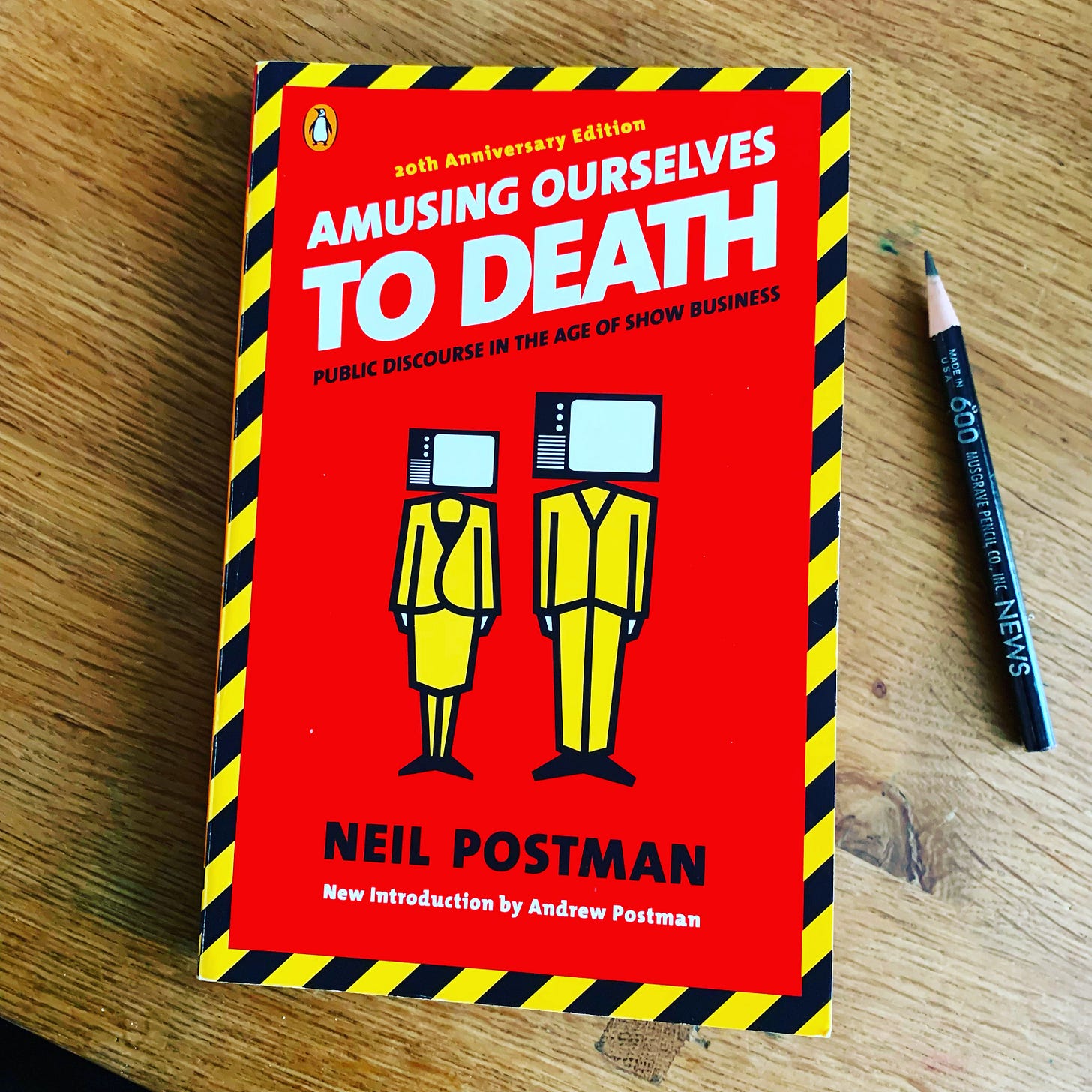Amusing Ourselves To Death
Neil Postman’s 1985 book is more relevant than ever
Hey y’all,
My sons went back to school yesterday. When I was a kid, the start of school came with a sense of new beginnings. The death of summer was the birth of new adventures.
In that spirit, today I want to start something new. This is a first in a series of what (I think?) will be monthly posts about my favorite books, the books that have been influential on my work. You can think of this series as an extension of the Read Like an Artist book club, except I won’t be limiting the selection to books I think will be great for a book club discussion. These might be pretty weirdo, sometimes challenging, books that are near and dear to my heart.
I read Neil Postman’s Amusing Ourselves To Death: Public Discourse in the Age of Show Business in 2017, just as I began working in earnest on what would become my book Keep Going. Earlier that year, Postman’s son, Andrew Postman, wrote an op-ed titled, “My dad predicted Trump in 1985 – it's not Orwell, he warned, it's Brave New World.” The book is a perfect example of how if you want to understand the present, look to the past… even the recent past.
In 1985, Americans had been saying, “Look! 1984 didn’t happen! We’re still here!” But Postman pointed to Brave New World, a book that was “slightly older, slightly less well known, equally chilling.” In Huxley’s vision, Postman writes, “no Big Brother is required to deprive people of their autonomy, maturity and history. As he saw it, people will come to love their oppression, to adore the technologies that undo their capacities to think.”

What Orwell feared were those who would ban books. What Huxley feared was there would be no reason to ban a book, for there would be no one who wanted to read one. Orwell feared those who would deprive us of information. Huxley feared those who would give us so much that we would be reduced to passivity and egoism. Orwell feared that the truth would be concealed from us. Huxley feared the truth would be drowned in a sea of irrelevance. Orwell feared we would become a captive culture. Huxley feared we would become a trivial culture…. In short, Orwell feared that what we hate will ruin us. Huxley feared that what we love will ruin us.
“This book,” Postman wrote, “is about the possibility that Huxley, not Orwell, was right.” (For a graphic adaptation of the introduction, see this Stuart McMillen comic.)
Postman investigates the changes our American culture has gone through as we have moved from an age of books, pamphlets and newspapers to the age of television, or, “from the magic of writing to the magic of electronics.” (The first Macintosh was only a year old when the book was written.) He describes our new world as “a peek-a-boo world”:
A peek-a-boo-world, where now this event, now that, pops into view for a moment, then vanishes again. It is a world without much coherence or sense; a world that does not ask us, indeed, does not permit us to do anything; a world that is, like the child’s game of peek-a-boo, entirely self-contained. But like peek-a-boo, it is also endlessly entertaining.
Sound familiar?
Keep reading with a 7-day free trial
Subscribe to Austin Kleon to keep reading this post and get 7 days of free access to the full post archives.



